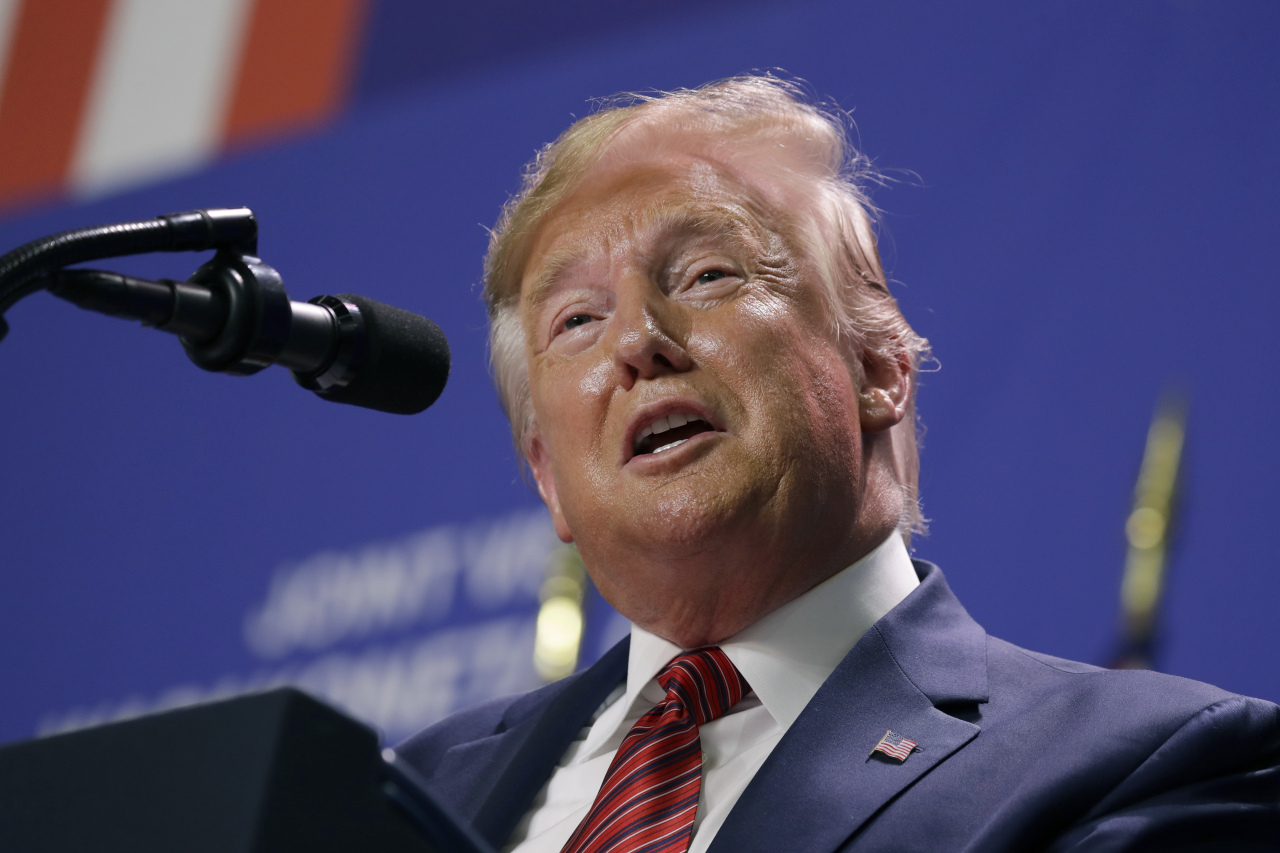The mood for dialogue between the US and North Korea has been heightened with US President Donald Trump’s recent comment on the possible employment of a “new method” to break the deadlock in nuclear talks with Pyongyang.
A “new method would be very good,” Trump said on Sept. 18, criticizing the maximalist approach maintained by former US national security adviser John Bolton, who advocated the “Libyan model” in denuclearizing the regime.
 |
President Donald Trump speaks during an event with Australian Prime Minister Scott Morrison at Pratt Industries, Sunday, in Wapakoneta, Ohio. (AP-Yonhap) |
Trump fired Bolton, who was described as a “war monger” by the North, two weeks ago over policy disagreement.
Libyan leader Moammar Gadhafi agreed to abandon his nuclear ambitions in exchange for sanctions relief in the early 2000s. Within years, Gadhafi was overthrown and killed by rebels backed by Washington, in 2011.
Pyongyang has been demanding the US come up with a “new calculation method” before year-end for their talks to make progress following the collapse of a second summit between Trump and North Korean leader Kim Jong-un in February.
North Korean diplomat Kim Myong-gil, who will be leading a planned working-level talks with Washington, welcomed Trump’s remark and hoped that it signals a shift in Washington’s stance away from its demands at the February summit. Trump walked away from making a deal after North Korea rejected the US proposal that the regime give up its entire nuclear weapons program as well as its chemical and biological weapons.
“At the moment I am not quite sure what he implied in his suggestion of ‘new method,’ but to me it seems he wanted to imply that a step-by-step solution starting with the things feasible first while building trust in each other would be the best option,“ Kim said
The two countries’ negotiators are expected to hold working-level talks later this month.
The US appears to be considering adopting a phased approach toward the full denuclearization of North Korea, starting with all of its nuclear weapons program in contrast to its previous pursuit of a comprehensive deal requiring the elimination of the North’s weapons of mass destruction,
“I expect that the US will call for complete removal of the most important ones, which are nuclear weapons first at this stage and then will seek to eliminate others like chemical and biological weapons once they build trust as the North insisted,” said Kim Jin-a, research fellow at the Korea Institute for Defense Analyses.
But the US is likely to demand the regime open everything that falls into the category of “nuclear” for any deal to win congressional support, Kim said.
Robert Einhorn, senior fellow at the Brookings Institution, suggested a similar strategy to Kim’s: Address chemical or biological weapons, which pose greater verification and definitional challenges, separately from an “interim agreement,” which only deals with nuclear and missile capabilities.
He stressed that the agreement should ban the production of fissile materials such as highly enriched uranium and plutonium, in North Korea, to cap further nuclear arsenal development.
The interim approach differs from what Pyongyang has wanted -- incremental steps, dividing the denuclearization process into several phases like a nuclear freeze, verification, dismantlement and inspection.
For corresponding economic measures, Kim said the US could relax its policies on activities related to tourism, personal cultural exchange and humanitarian assistance, which could be conducted within the framework of the UN Security Council resolution, Kim said.
By Park Han-na (
hnpark@heraldcorp.com)








